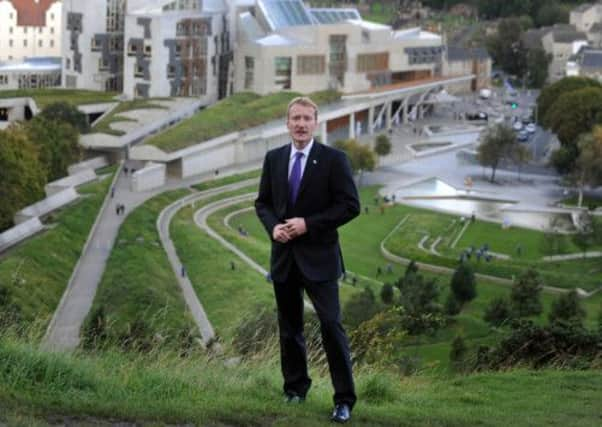Tavish Scott: Roads must be part of strategy


Sitting in the morning traffic from the nursery drop-off to work makes the average driver contemplate congestion. Every city and built-up area has a rush hour. Some have a rush hour that stretches time. In many Scottish towns, commuter traffic takes a lot less than an hour to clear back to normal road conditions.
But whether the commuter is sitting on Lothian’s greenest bus or in a four-litre gas guzzler, there is an environmental downside of going nowhere fast. So should we price the road space we use?
Advertisement
Hide AdAdvertisement
Hide AdDavid Begg was an early proponent of road pricing. In the days when John Prescott was Tony Blair’s first transport secretary, the 1997 Labour government was full of new ideas about tackling city congestion. The aim was to reduce carbon emissions and improve air quality in built-up areas. Sadly many good ideas were parked in a lay-by. The UK Treasury would not accept that road pricing’s introduction could go hand-in-hand with the removal of the hated fuel duty and vehicle excise duty – the car tax disc. Politicians backed away from unpalatable choices.
Now a Scottish think-tank has thrown road pricing back into the transport melting pot. To their credit Reform Scotland know such an innovation can only happen if powers are devolved to the Scottish Parliament and road taxes are abolished at the same time. Motorists will openly revolt if a new charge or tax is introduced on top of all the other costs. That was the drawback to Edinburgh’s congestion charging scheme. The capital’s residents and commuters could not see what they would get in return. That is the only way any government now wins a tax argument. The public and the taxpayer must see what they get for a new tax.
There is nothing more emotive than motoring taxation. Ask Tony Blair. A major fuel crisis during the Labour government years was one of the few times the then prime minister looked rattled by events. So Reform Scotland have produced a useful analysis. It recognises that rural areas are hammered by existing road taxation. There is no recognition in the tax system that the car is essential in many areas across the UK where public transport is patchy to non-existent. Yet road pricing could allow that to happen. A pay-as-you-drive system can cope with different charging rates depending on location. Most of us have a sat nav or a mobile with a road atlas app. Location is easy.
There are real advantages to a policy which links congestion, emissions and charging. It could be properly explained and constantly refined to recognise changing patterns of vehicle movement. Public transport would adapt to provide a cost competitive alternative to the car. Will this policy fly? Not any time soon. Scotland is in political no-risk territory as the Scottish Government battens down the policy hatches. But road pricing needs an airing if politicians are to tackle climate change. • Tavish Scott is the Liberal Democrat MSP for Shetland